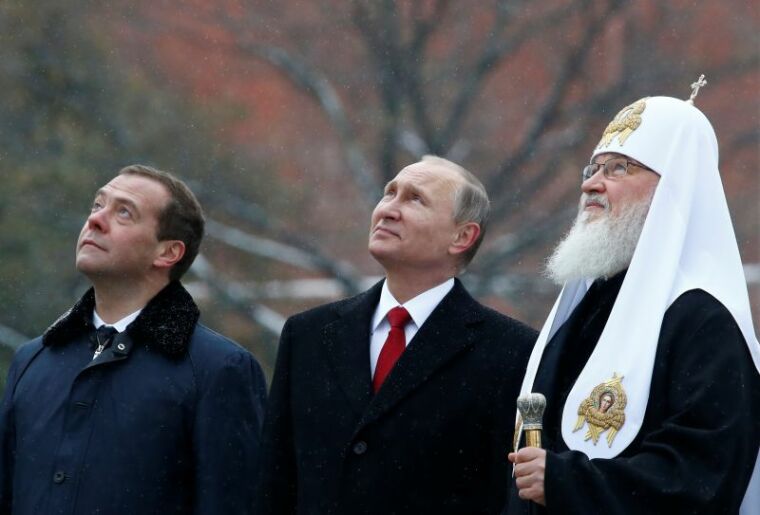Putin a threat to religious liberty, commissioners claim in USA Today editorial

WASHIINGTON (Christian Examiner) – Two members of the U.S. Commission on International Religious Freedom, which advises Congress on matters related to persecution and religious violence abroad, have claimed Russian President Vladimir Putin is intent on destroying all but the Russian Orthodox Church in his country.
According to Commissioners Clifford D. May and John Ruskay, Putin sees religion as key to controlling his state. He and his allies, May and Ruskay said, "wish to extend authoritarian control by subjugating alternative sources of authority."
"Under the guise of national security, they allege that certain groups pose a cultural as well as physical threat to Russia. They deem the Russian Orthodox Church's Moscow Patriarchate the nation's cultural and religious repository and treat most other religious groups as rivals and dangers to Russia's unity," they wrote.
Under the pretext of fighting terrorism, the package includes a particularly chilling measure, especially for evangelical Protestants and others who actively share their faith. The new measure makes it a crime to engage in religious activities that range from preaching and teaching to religious publishing, anywhere in Russia besides government-approved sites.
Some of the groups targeted by Russian authorities include Muslims, the Jehovah's Witnesses, Mormons, Scientologists and even Baptists. For instance, Jehovah's Witnesses can be arrested and imprisoned for up to four years for distributing unauthorized literature. Baptists can be arrested for public preaching outside of a location approved by the government.
Putin signed a series of laws in July which the commissioners called the "most repressive" the country had seen since the fall of the Soviet Union in the late 1980s and early 1990s. Those label peaceful actions, like proselytizing, as subversive. In some instances, activities that occur regularly in the West are equated with "terrorism," they wrote.
"Under the pretext of fighting terrorism, the package includes a particularly chilling measure, especially for evangelical Protestants and others who actively share their faith. The new measure makes it a crime to engage in religious activities that range from preaching and teaching to religious publishing, anywhere in Russia besides government-approved sites," May and Ruskay wrote.
The new laws make missionary work especially difficult because evangelical Protestants are wary of government intervention. For that reason, they often eschew notifying government officials of their presence. In other cases, government agents refuse to register Protestant workers or houses of worship.
Violating the new laws can be costly. According to May and Ruskay, prison terms can be accompanied by large fines "approaching 1 million rubles."
"The fine for organizations ranges from 100,000 to 1 million rubles ($1500 to $15,000). Since unregistered groups are considered illegal entities, individual members also could be prosecuted," they wrote.
They also said prosecutions have already begun.
"On July 22, Aleksei Telius, a Baptist pastor who organized a children's summer camp in Noyabrsk, was fined 5,000 rubles. On August 14, Donald Ossewaarde, an American Baptist, was fined 40,000 rubles for holding religious services in his own home in Oryol," May and Ruskay wrote.
They also claimed Putin's government is in violation of Article 18 of the 1948 Universal Declaration of Human Rights, which guarantees freedom of religion and belief.
May and Ruskay said many Russians have taken notice of the increasing oppression. They are again seeing a dark, iron curtain descend over the county, they wrote.
The enactment of the new laws, they said, mean it is "time for the world — starting with the American people, the U.S. government, and the next U.S. administration — to raise its voice against this latest retreat to a dark Soviet past."
Russia did not make the USCIRF's list of Tier 1 "Countries of Particular Concern" in its 2016 report. It was, however, selected as a Tier 2 country, or one that should be monitored closely in the future.